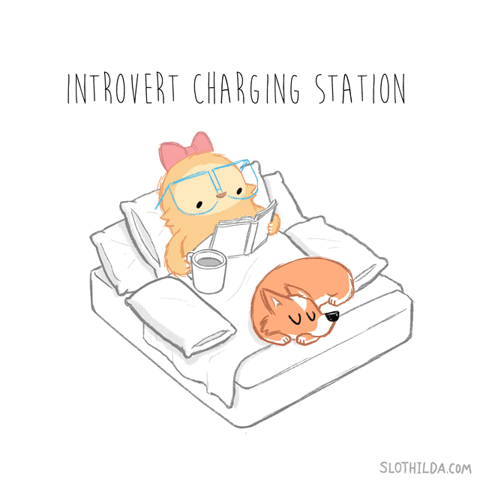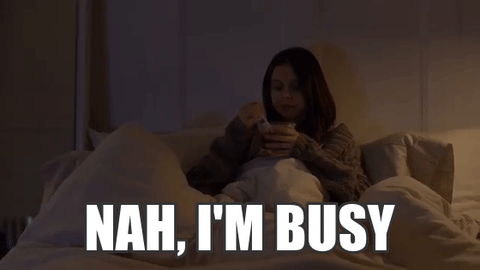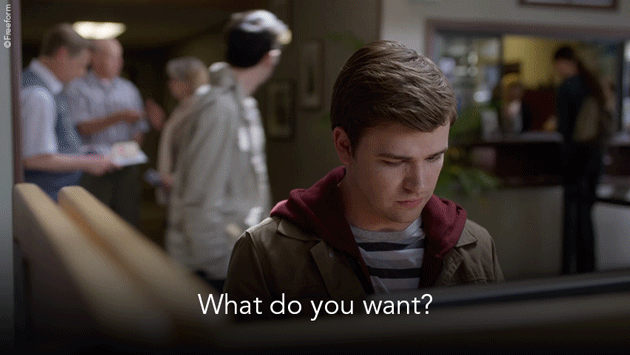You’ve seen them: the “12 Things Introverts Hate” or “13 Things Introverts Still Wish You Understood About Them” articles. They’re on websites ranging from LifeHack.org and Buzzfeed.com to HuffingtonPost.com and they all claim to definitively summarize the inner life of the average introverted person.
The scary thing is that they’re usually pretty accurate. I end up reading them with a subtle current of paranoia coursing through my veins, slowly convincing myself that there’s someone out there watching my every move and covertly recording my introverted behavior for government psychology databases.
As an introverted person who has been reading these articles for half my lifetime now, there’s one thing I’ve learned— however biased it may be: introverted people are pretty awesome. Our heightened propensity for authenticity and empathy often make us really effective leaders and some of the best friends.
But there’s also something these articles teach us introverted ones that we may not be so open to hearing: we’ve got some growing to do.
Where these articles most often pick up on the introverted struggle is in the space where introversion and extraversion collide. That’s where the 10 Things That Introverts Say, And What They Really Mean moments tend to happen. That’s where 10 Things Introverts Want You To Know tend to come up. And that’s not because introverted people are these perfect specimen descended from heaven (‘cause we’re not. I can’t stress that enough). It’s because there’s just bound to be tension where there are differences. Plain and simple.
Introverted people are fantastic (again, I acknowledge my bias here) but the extraverted are fantastic too. They often have the easiest time motivating work groups toward action and they’re awesome at making hangouts and parties fun. If the introverted are going to live well with the extraverted in our lives and once-and-for-all convince the world that we don’t actually hate people, we can’t just have 5 million things we hate and 10 trillion things we wish people understood about us. Getting socially exhausted and retreating to our rooms to binge-watch our favorite Netflix show can’t always be the final solution.
Since we can only control ourselves, we’re going to have to suck it up sometimes and be nice (technical translation: we’re going to have to be gracious). And here are 4 ways to do it.
1. Be a hermit… but strategically.
Giphy.com
Notice I said binging Netflix can’t always be the solution? Well, that’s because sometimes it very well needs to be.
What defines introversion isn’t a disdain for people but a unique way of processing social, psychic and emotional energy. Large groups of people and loud, accumulating chatter are pleasurable for the extraverted while those things tend to be more tiring and overstimulating for the introverted. And, as a result, the introverted often experience parts of the day when we need to “recharge” by retreating to a private, low-stimulation space (A.K.A. #HermitTime).
However, we still live in a world where extraverted behaviors are not only more desirable but are actually used to define the social norms of our classrooms, lecture halls, and workplaces. So, when we fail to engage in behaviors like initiating and enthusiastically participating in conversations, we’re usually seen as un-affirming of the social setting and are thought of as stuck-up, shy or awkward.
If you want to avoid being the introverted friend or coworker who gets labeled as the weird misanthrope, strategically plan your hermit time. Schedule it with as much advance notice as possible and try not to do it during times when the people you’re hanging with will interpret it as rude.
Got a party planned for the evening? Plan 2-3 hours of hermit time beforehand rather than hiding in the bathroom for 45 minutes during the party. Already cornered in a group conversation that it would be weird to step out of? If you’ve got a little social energy left over, laugh on cue for a bit, slip in a quick joke and some eye-contact with the guy sitting next to you, and then tell everyone you’ll see them later before stepping out of the conversation. Soundlessly slipping away without saying anything or without participating in the conversation at all will not save you from rumors of your rudeness.
2. Kindly be honest.
Giphy.com
There are two questions that can easily annoy introverted people:
“Why are you so quiet?”
…and...
“Why did you leave so early?”
Many of us have been tempted for a lifetime to respond with slight embellishments of the truth.
I’m just listening. Oh, I had a paper I needed to work on. I’m just not feeling well today.
And in so doing, we become the very proponents of inauthenticity that we loathe so much (we talk more about this in a bit).
The solution? Just tell the truth without being sarcastic about it.
I’ve gotten used to telling my extraverted comrades, quite simply, that I don’t have anything to say or that I’m waiting until I have something meaningful to say before I chime into a conversation. And when I leave an event early, I admit that I didn’t have any more social energy for the evening and ask how it went.
I don’t apologize. I don’t make something up. And if someone gets offended by my responses, I don’t take it personally. Being honest and kind when the extraverted ask these questions is just the most authentic way to go— and a way to inadvertently teach them more about what it means to be introverted.
3. I know, I know…. but say ‘Good morning!’ and chat about your weekend with Enthusiastic Emily anyway.
Giphy.com
There are two things I’ve observed to be true about myself and other introverted people:
(A) We don’t usually like small talk and…
(B) …we definitely don’t like it early in the morning.
Small talk for the introverted is like wireless Apple earbuds for the moderate iPhone enthusiast: yeah, they make you look fancy, but who wants to pay that much for something you don’t need?!
We know that engaging in small talk before our 8am lecture or before our morning shift is the friendly thing to do, but it costs us social energy that we haven’t even accumulated yet for the day. Our more extroverted counterparts just want to connect socially in the way that energizes them, but it’s expensive and energy-sapping for us to join in.
Small talk is also generally annoying to most introverted people. We prefer to spend our easily-depleted social energy on learning new, valuable information about the people we talk to. We want to trade stories about what impassions us. We want authenticity and meaning. And for many of us, how many episodes of such-and-such you watched Friday after class just doesn’t meet the authenticity standard.
The good news about social energy, though, is that it’s recyclable— 30-minutes spent listening to a good playlist in solitude should usually do it. And the inauthenticity of small talk, believe it or not, is a necessary tool for centering ourselves with others in the present moment, building meaningful future connections, and even non-awkwardly transitioning from one space or moment to another. No matter how tiring or annoying small talk is, we need it in our lives as social beings.
So, take a deep breath, force a genuine smile, and chat-it-up with Enthusiastic Emily anyway (HINT: the bottom of this article gives some helpful tips for how to do small talk well). You may regret it if you don’t.
4. Forgive the extroverted, for they know not what they do.
Giphy.com
If you’re an introverted person, you’re likely pretty self-aware. Since we enjoy the internal experience so much— that beautiful space inside of our heads and hearts— we tend to become very skilled at detecting in real time why we do the things we do and what emotions and behaviors result. But just like our extroverted counterparts, our brains still leave much of our decision-making to the autopilot of our subconscious mind.
This means that most of the extraverted behavior we encounter— the gregarious talking, the risk-taking, the self-promotion, the attention-seeking— isn’t purposeful. Extraverted people crave and engage in these behaviors because their brains are rewired to automatically release the pleasure hormone dopamine when they do. Those behaviors fuel the extroverted brain, makes it feel good. But the introverted brain, on the other hand, tends to get overstimulated just at the thought of engaging in those behaviors. Neither side of the introversion-extraversion coin can be blamed for how it ticks.
Now, of course, there will always be people like this extroverted paragon of kindness who insult introverted people for kicks, giggles, and likes. But, for the most part, accept that extraversion isn’t a purposeful affront to all things quiet and solitary. You won’t always get it in return, but offer some Grace Space for extroverts to be themselves.












 man running in forestPhoto by
man running in forestPhoto by 










